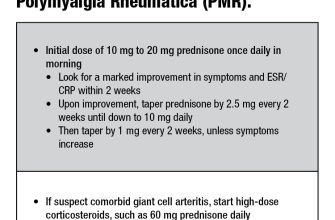Synthroid 150 mcg is a significant dose, typically prescribed for individuals with substantial hypothyroidism. This dosage requires careful monitoring by your doctor, and consistent adherence to the prescribed schedule is key for optimal results. Regular blood tests will track your thyroid hormone levels, ensuring the medication effectively manages your condition.
Never adjust your Synthroid dosage without consulting your physician. Doing so can lead to serious health consequences. Your doctor will adjust your dosage based on your individual needs and test results. Expect regular check-ups and open communication with your healthcare provider.
Potential side effects at this dosage may include increased heart rate, weight changes, or changes in bowel habits. Report any unusual symptoms immediately. While these are possible, many patients experience few or no side effects at this dose. Your doctor can discuss strategies to mitigate any potential side effects.
This high dose indicates a significant thyroid deficiency, therefore managing your diet and lifestyle is crucially important. Maintain open dialogue with your doctor to explore any nutritional considerations or lifestyle changes that might support your treatment.
Understanding Hypothyroidism and the Role of Synthroid
Synthroid, containing levothyroxine, replaces the thyroid hormone your body lacks when you have hypothyroidism. Hypothyroidism means your thyroid gland doesn’t produce enough thyroid hormone, slowing down your metabolism. This can lead to fatigue, weight gain, constipation, and dry skin. A simple blood test measures your thyroid-stimulating hormone (TSH) levels; high TSH indicates hypothyroidism.
Diagnosing and Managing Hypothyroidism
Your doctor will order blood tests to confirm the diagnosis and determine the appropriate Synthroid dosage. This dose is personalized and adjusted based on your TSH levels and response to treatment. Regular monitoring is vital for managing your condition effectively. Follow your doctor’s instructions carefully; altering your dosage without consulting them can have serious consequences. Expect regular blood tests to ensure your dosage remains optimal. Symptoms should improve gradually with appropriate treatment. Maintaining a healthy lifestyle, including a balanced diet and regular exercise, complements medication and contributes to overall well-being.
Living with Hypothyroidism
Managing hypothyroidism is a long-term commitment, requiring consistent medication and monitoring. Open communication with your doctor is key. Report any new or worsening symptoms. While Synthroid effectively replaces missing thyroid hormone, it doesn’t cure hypothyroidism. Consistent treatment, however, allows most people to lead active and healthy lives. Understand that individual responses to Synthroid vary; patience and close medical supervision are important for optimal results.
Adjusting Synthroid Dosage: When and Why
Your doctor adjusts your Synthroid dosage based on your individual needs and TSH levels. Regular blood tests are key to monitoring thyroid hormone levels. Target TSH levels usually fall within a range of 0.5 to 2.0 mIU/L, but your doctor may adjust this depending on your circumstances.
Factors Influencing Dosage Changes
Several factors can necessitate a dosage change. Weight fluctuations significantly impact how your body processes Synthroid. Pregnancy and other hormonal changes also influence dosage requirements. Changes in your overall health, such as starting new medications, may also affect your thyroid hormone levels and the necessary Synthroid dose.
Signs You May Need a Dosage Adjustment
Symptoms of hypothyroidism (underactive thyroid): These include fatigue, weight gain, constipation, cold intolerance, and dry skin. Symptoms of hyperthyroidism (overactive thyroid): Include weight loss, anxiety, rapid heartbeat, and heat intolerance. If you experience any of these symptoms, contact your doctor immediately. They will order blood tests to assess your thyroid hormone levels and determine if a dosage adjustment is necessary.
Remember: Never adjust your Synthroid dosage without consulting your doctor. Self-adjusting can lead to serious health complications. Regular monitoring and open communication with your doctor ensure optimal thyroid health and medication management.





